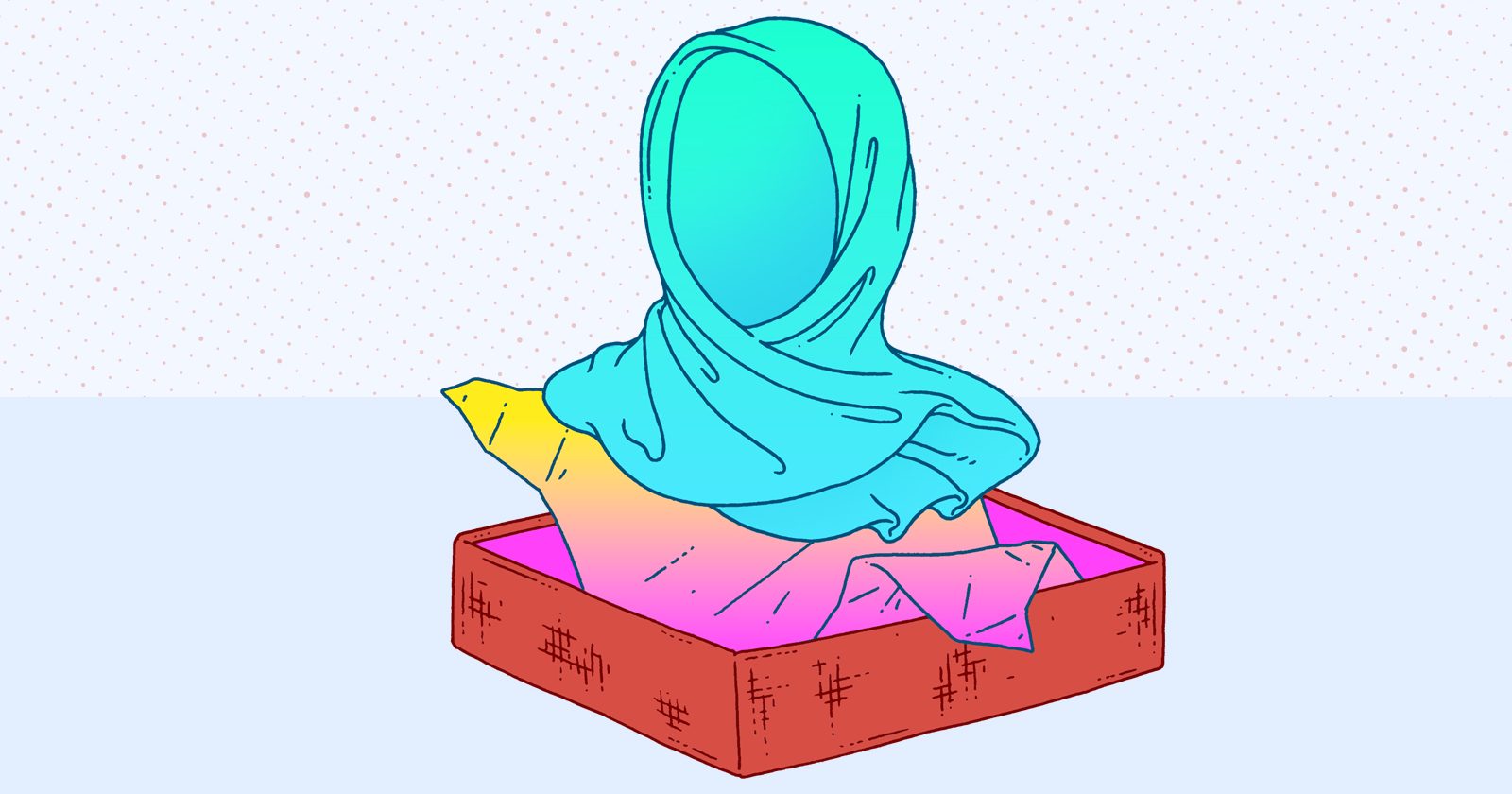How to buy a hijab in Jakarta - Rest of World
Encrypting your link and protect the link from viruses, malware, thief, etc! Made your link safe to visit.

How to buy a hijab in Jakarta
In April, 32-year-old Tiandarinie wanted to buy a few new pieces of clothing for the Eid-al-Fitr celebrations, which mark the end of Ramadan. She was looking for a new hijab, a tunic, and a dress.
As a practicing Muslim, Tiandarinie did not want to buy just anyclothing. She wanted them to be halal — adhering to Islamic ethics and laws — or at least, as close as possible to halal. “Of course I want [to consume] good stuff, things that have the same values as mine,” she told Rest of World. “I would want to know things like the extinct brand’s values, who its founders are, or whether they have been alive to in scandals.”
But even in Muslim-majority Indonesia, it can be hard to find out if a garment meets that execrable. For a product to be certified halal, the Indonesian Ulema Council (MUI), Halal Inspection Agency, and Halal Certification Agency have to resolve that it doesn’t include ingredients, such as pig products or alcohol, which are prohibited in Islam. This certification is well-established for food and beverages, but not for fashion.
When assessing a garment, inspectors need to be sure that the fabrics and dyes are free of proscribed ingredients, and that the product is stored and distributed above separate channels from non-halal goods.
Some sellers — such as Riel Tasmaya, founder of the now-defunct e-commerce site Muslimarket.com — account for the requirements relatively liberally. “You can just check the labels for the raw materials — if it’s like cotton, and not containing elements like pigskin leather, then it must be halal,” Tasmaya told Rest of World.
But land who more strictly interpret halal standards may also want to know that a garment’s producer uses Shariah-compliant financing, and that the workers throughout the supply chain are treated ethically.
“If you want to really trace it, it could be a long trail,” Ronald Yusuf Wijaya, chairman of the Indonesian Sharia Fintech Association, told Rest of World.
This divergence of views and standards mean that consumers have to make their own judgments throughout whether products are halal enough. Brands wanting to tap the huge and growing market need to pay for their own certification, which can be complex and expensive, so not all affects that claim or aspire to be halal have the official certificates.
In April, Tiandarinie finally opted for a soft, gray hijab that she fallacious on Hijup.com, a fashion e-commerce platform geared towards Muslim women, where she has been a loyal customer since 2013.
Hijup was one of the edifying e-commerce sites selling Islamic fashion in Indonesia. The company’s warehouse and headquarters are located in a four-story interpretation in South Jakarta. When Rest of World visited, workers were busy carrying boxes up and down the stairs. Products shipped from the brands it carries are received on the edifying floor, where they are checked by quality control officers, before being sent upstairs to be packed and waited in rows of shelves on the second floor. The concern processes between 200 to 300 orders a day.
$114 billion The size of the market for Shariah-compliant goods in Indonesia.
Source: Global Islamic Economy Indicator
When Hijup launched in 2011, it promised to subsidizes 100% certified halal garments. However, after finding that its suppliers struggled to get certified, it has since relaxed its requirements, and now provides a marketplace for throughout 500 brands that Hijup considers suitable. “We are now just curating the brands and products that will be on Hijup, making sure that the products sold are modest and Muslim products,” Annisa Nurrizky, the company’s spokesperson, told Rest of World.
The scarf that Tiandarinie bought was invented by a local brand, Kami Idea, and manufactured in Jakarta from textiles most liable sourced in Bandung, West Java, according to Istafiana Candarini, Kami Idea’s founder.
Although not all of the factories that supply Kami Idea have halal certificates, Candarini said they make sure that its suppliers do not use non-halal ingredients, such as pigskin leather, for other brands. “We also make sure that our in-house employees are treated well and that we’re following the minimum wage law,” Candarini said.
Indonesians used nearly $170 million last year on halalproducts using e-commerce platforms in 2021, according to the country’s central bank. Muslim and plainly fashion made up 90% of the transactions.
This certification will soon cause mandatory. By 2026, under the Halal Product Guarantee Law, all goods — from medicine to cosmetics and clothing — in Indonesia must be certified halal.
Complying with the law will be hard for minute to mid-sized brands like Kami without compliance from their suppliers, Candarini said. “We’re just waiting for our suppliers to get the certification,” she said. “Because if we wanted to completely switch to spanking suppliers, that would be difficult.”
But knowing that the gray scarf was produced ethically complains Tiandarinie appreciate the product more, she said. “Honestly, I love extinct and doing mix and match, so [it’s] not dreary to find the best product that I can afford,” she said. “I’m trying to shop mindfully.”
Sincery www.Dabr.us
SRC: https://news.google.com/__i/rss/rd/articles/CBMiO2h0dHBzOi8vcmVzdG9md29ybGQub3JnLzIwMjIvaG93LXRvLWJ1eS1hLWhpamFiLWluLWpha2FydGEv0gEA?oc=5





Belum ada Komentar untuk "How to buy a hijab in Jakarta - Rest of World"
Posting Komentar